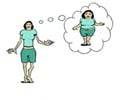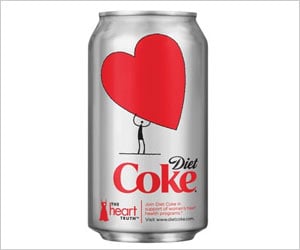Disordered eating may have far-reaching negative effects on the general health and wellbeing of young adults.

TOP INSIGHT
Disordered eating is detrimental to the physical and mental health of young adults both in the short and long term.
"Even if the symptoms do not constitute a clinical eating disorder, early recognition and treatment is important, also for men."
Published in the European Eating Disorders Review, the study is part of the extensive FinnTwin 16 study, and included more than 4,900 young Finnish men and women. The research participants answered questionnaires on eating behaviour, weight, health and psychological wellbeing at age 24 and again, ten years later at age 34.
When all variables were considered, disordered eating at age 24 was a predictor of lower psychological wellbeing among both women and men as well as a lower self-evaluation of health among men ten years later.
"These results prove that disordered eating is detrimental to the physical and mental health of young adults both in the short and long term. Previous research has established that low psychological wellbeing and a poor self-evaluation of health are predictors of higher susceptibility to physical illness and mortality. To mitigate these long-term negative effects, we must recognise disordered eating early and direct sufferers to treatment," says Kärkkäinen.
Eating can also be considered disordered if a person meticulously plans each meal long into the future, counts calories and weighs foods, follows an excessively strict diet or cuts certain foods from their diet claiming health or ethical reasons, when the real motivation is weight loss.
Source-Eurekalert
 MEDINDIA
MEDINDIA




 Email
Email










